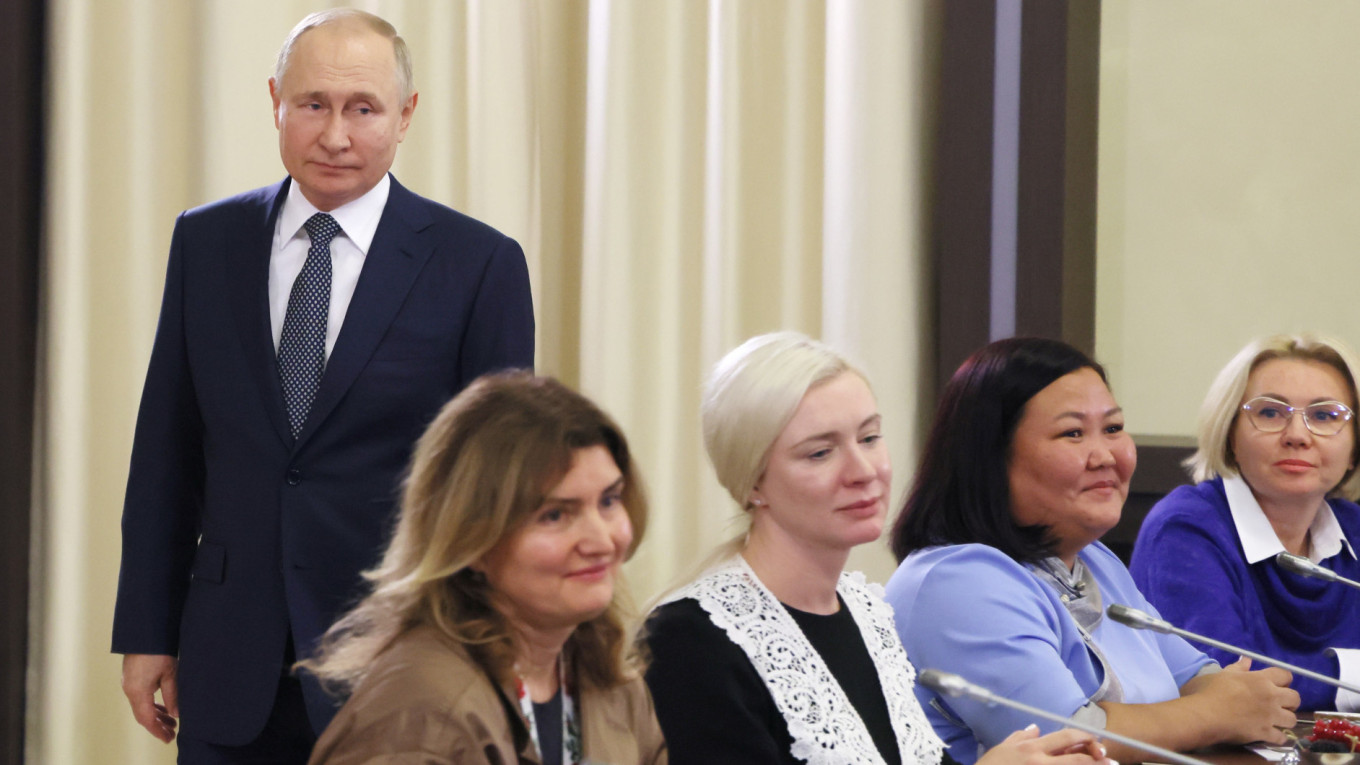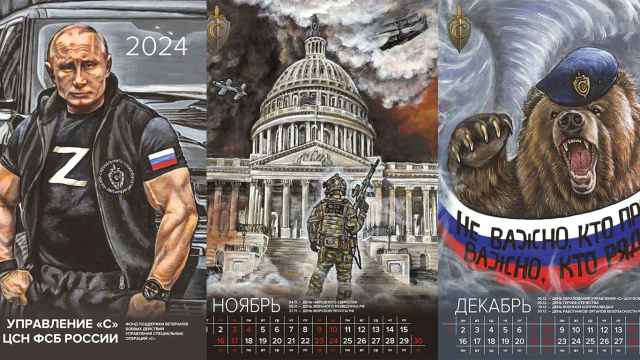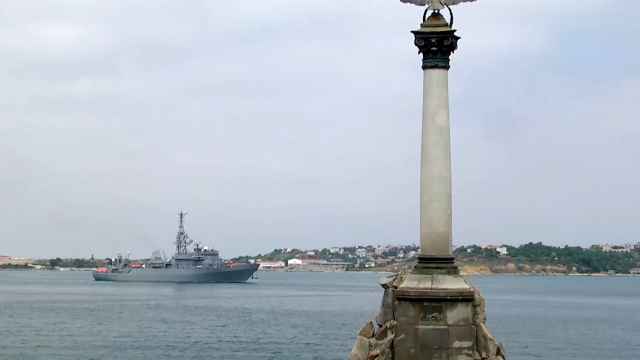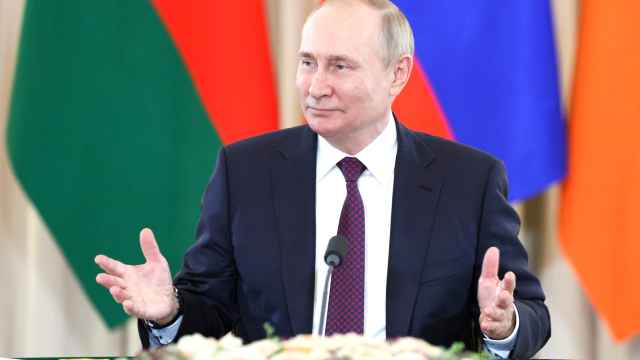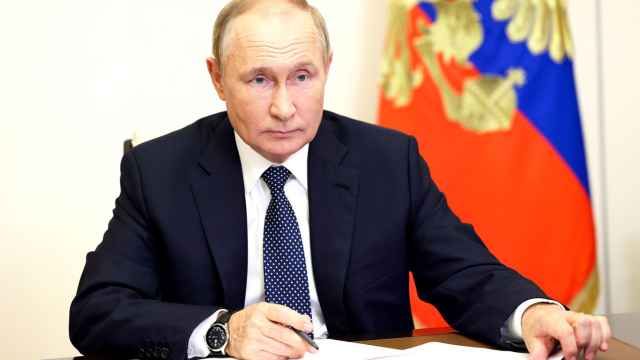Russian President Vladimir Putin last week met with the mothers of Russian soldiers serving in Ukraine in an event that was timed to coincide with Mother’s Day in Russia.
Before the gathering even came to an end, journalists had managed to identify most participants as women with close ties to the government and the ruling party.
No one from prominent grassroots organizations — the Council of Mothers and Wives and the Committee of Soldiers' Mothers — was present.
The Moscow Times looked at how this staged meeting was organized, why the Kremlin selected these particular women and whether subsequent media reports about their pro-Putin views discredited the event in the eyes of ordinary Russians.
Why was this gathering staged?
Putin "doesn't like meeting people who are active, impulsive, out of control and who might ask uncomfortable questions," one longtime Kremlin official and event organizer, who asked not to be identified, told the Moscow Times.
While it is unknown where Putin’s caution about spontaneous encounters with members of the public originates, many trace it back to a stormy meeting in 2000 with relatives of sailors killed in the Kursk submarine disaster. In that televised encounter, Putin appeared hesitant and on the back foot.
This time, the women present were all selected in advance.
“Although their sons were injured or died in this war, these women were closely connected with the state… their behavior was more predictable,” said another Kremlin official.
All the women were given a detailed briefing and required to attend a rehearsal, the official told The Moscow Times on condition of anonymity.
Who was there?
In total, 17 women were at the meeting in Putin’s Novo-Ogaryevo residence outside Moscow.
Seated next to Putin was Zharadat Aguyeva. While she was described as a housewife in the official list of attendees, independent Telegram channel Mozhem Obyasnit reported that Aguyeva is actually close to the leadership of Russia’s North Caucasus republic of Chechnya. Her two sons are both fighting in Ukraine — and one of them, Rustam Aguyev, has been repeatedly referred to as a “brother” by Chechen leader Ramzan Kadyrov.
Others in attendance included: Olesya Shigina, a producer of religiously conservative and pro-government movies; Olga Beltseva, a Moscow municipal deputy from the ruling United Russia party; Marina Migunova, a Moscow official who delivers aid to Russian troops; and Yulia Belekhova, head of the Moscow region branch of the pro-Kremlin People’s Front.
Why did Putin need this meeting?
The Kremlin was likely calculating that the meeting would show Putin empathizing with those who have lost loved ones in Ukraine and shore up the narrative that the Ministry of Defense — not Putin — is to blame for Russia’s military problems.
Reversals in Ukraine and Russia’s chaotic “partial” mobilization have, among other things, resulted in declines in Putin’s approval rating.
According to the independent Levada pollster, in September Putin’s approval rating fell six percentage points to 77%.
Was the effect spoiled by media reporting?
On the one hand, exposing the meeting with soldiers’ mothers as staged reflected badly on its organizers.
“This, of course, was a shame,” Putin’s former speechwriter and independent political expert Abbas Gallyamov wrote on Telegram after the details of the attendees emerged.
And a Kremlin official involved in organizing events who asked not to be named told The Moscow Times that the media coverage would be seen as a failure.
On the other hand, few ordinary Russians are likely to have noticed.
Coverage of the real affiliation of the attendees was restricted to independent media. State-run outlets — how most Russians get their news — merely reported Putin’s words of sympathy and concern.
A Message from The Moscow Times:
Dear readers,
We are facing unprecedented challenges. Russia's Prosecutor General's Office has designated The Moscow Times as an "undesirable" organization, criminalizing our work and putting our staff at risk of prosecution. This follows our earlier unjust labeling as a "foreign agent."
These actions are direct attempts to silence independent journalism in Russia. The authorities claim our work "discredits the decisions of the Russian leadership." We see things differently: we strive to provide accurate, unbiased reporting on Russia.
We, the journalists of The Moscow Times, refuse to be silenced. But to continue our work, we need your help.
Your support, no matter how small, makes a world of difference. If you can, please support us monthly starting from just $2. It's quick to set up, and every contribution makes a significant impact.
By supporting The Moscow Times, you're defending open, independent journalism in the face of repression. Thank you for standing with us.
Remind me later.



